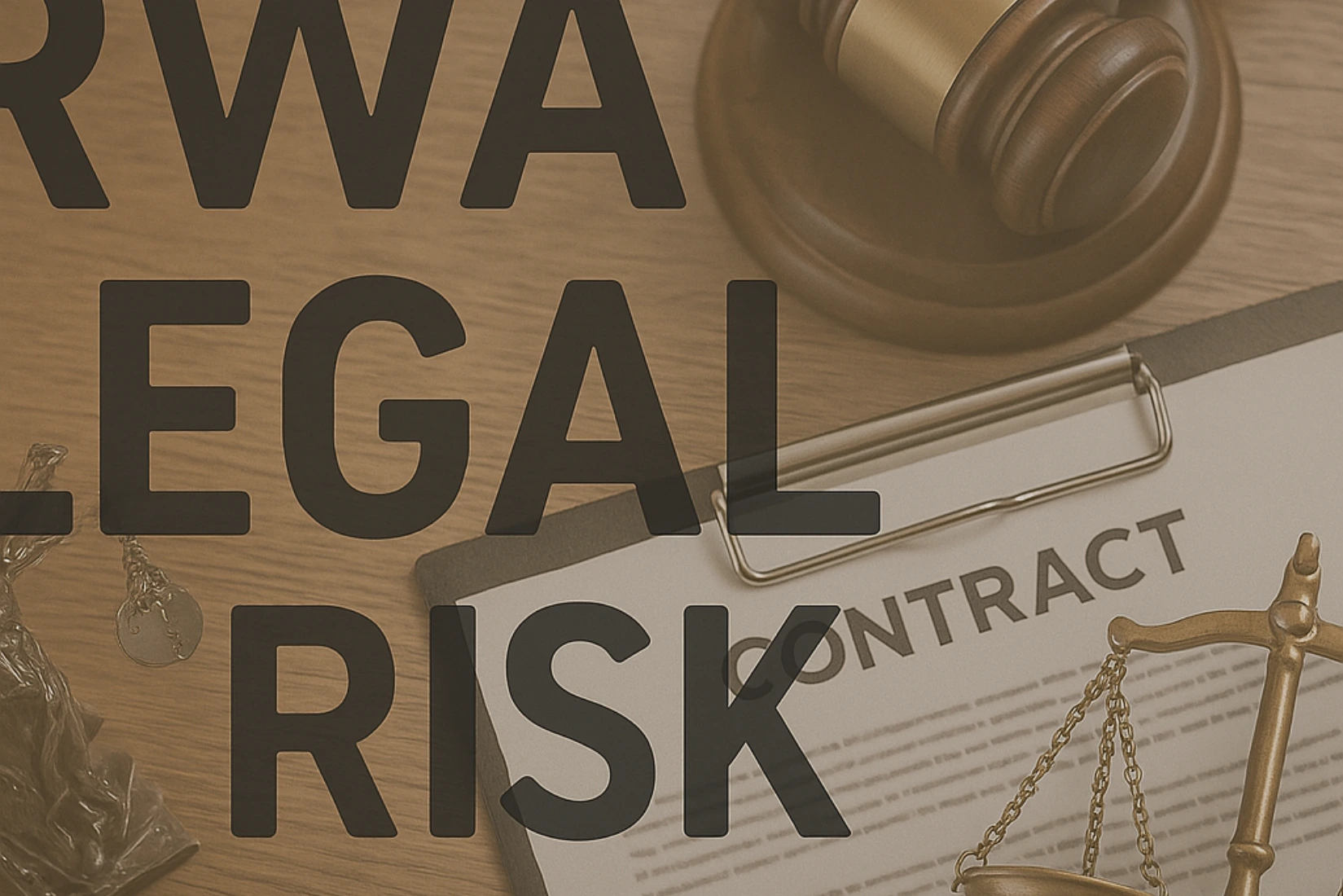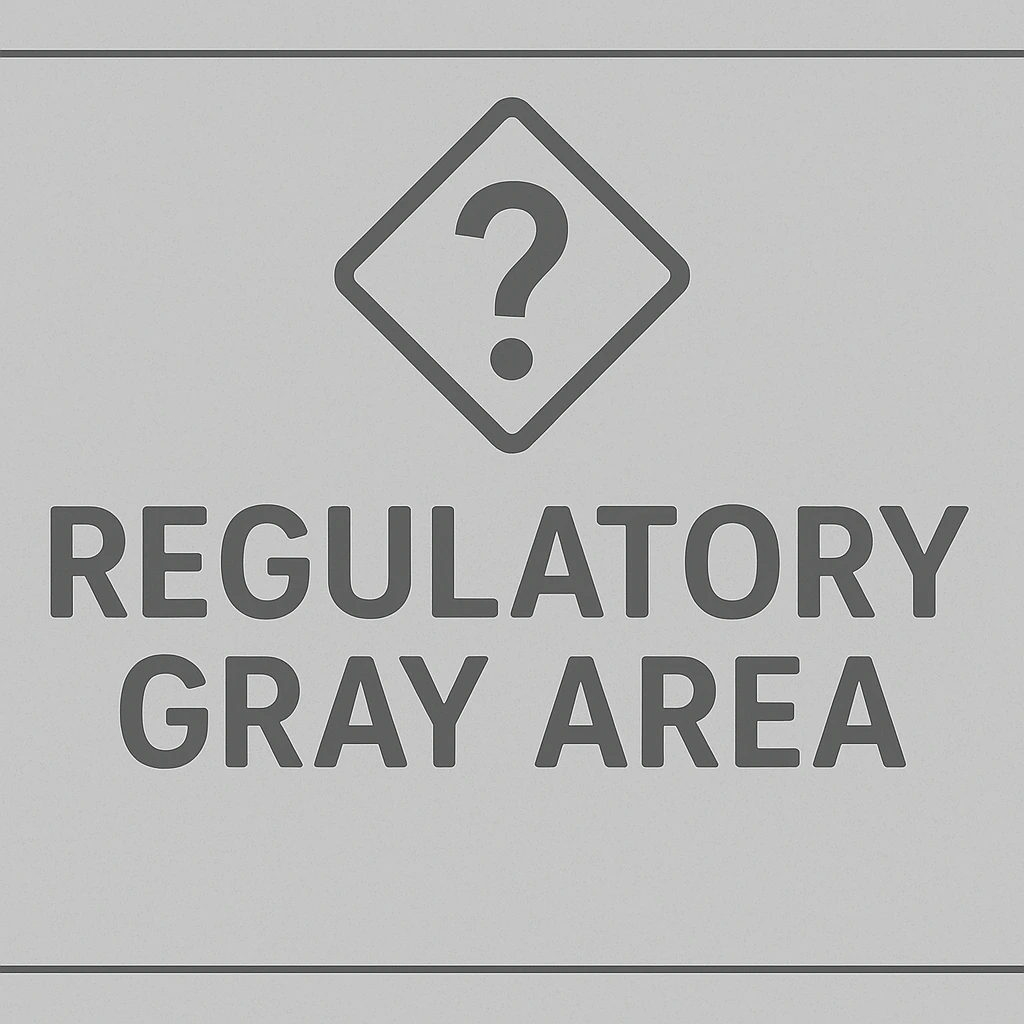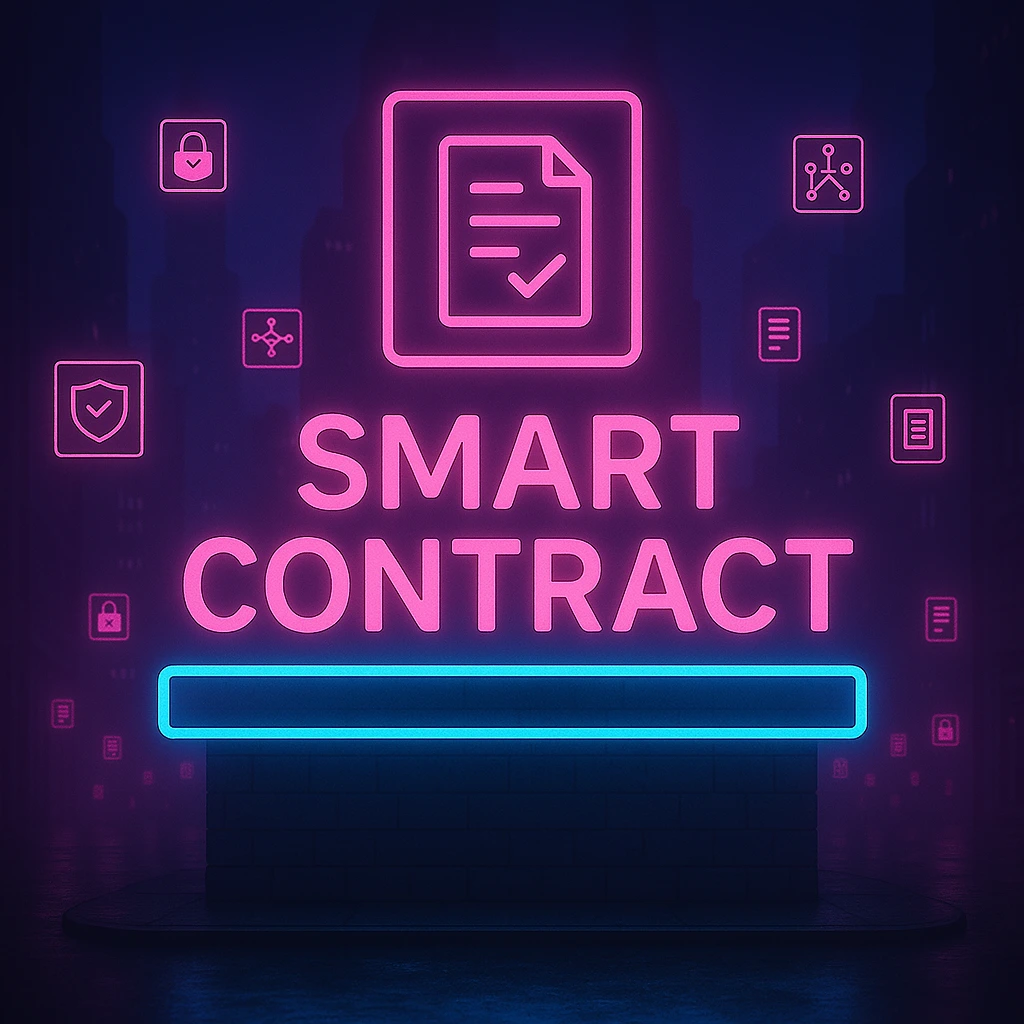RWA Legal Risk: 5 Myths You Probably Still Believe (And Why They’re Wrong)
December 31, 2024

RWA Legal Risk Isn’t Just a Buzzword—It’s a Reality Too Many Are Ignoring
Let’s bust a few bubbles: RWA legal risk isn’t some invented FUD to slow innovation. It’s one of the most overlooked—and misunderstood—obstacles in tokenizing real-world assets. Sure, the tech is exciting. Who doesn’t love the idea of owning a fraction of a skyscraper, vintage Ferrari, or U.S. treasury bond on-chain?
But here’s the thing—none of it works unless the legal foundation is solid. And right now? It’s full of cracks. So let’s unpack the most persistent myths around RWA legal risk—and why brushing them off could cost you.

Myth #1: “There Are No Rules For RWA Legal Risk Yet, So We’re Fine”
Truth bomb: Lack of regulation doesn’t mean freedom—it means danger.
Too many RWA projects assume that because laws aren’t crystal clear, they’re operating in a safe gray zone. Reality? That gray zone is often full of hidden traps. Tokenized assets might inadvertently breach securities laws, tax codes, or investor protections—especially when they cross borders.
Bottom line: Just because the law hasn’t caught up doesn’t mean it won’t catch you.


Myth #2: “Owning the Token = Owning the Asset”
Sounds simple, but it’s rarely true.
You might hold a token that says you own 1/1000 of a New York penthouse—but what does that mean legally? Is it direct property ownership? A share in a trust? A revenue right? If that’s not spelled out in a valid legal framework, that token might be nothing more than a digital receipt… with no enforceable value.
Bottom line: Without clear legal definitions, token ownership can be a legal illusion.

Myth #3: “Global Markets = Global Opportunity”
Yes, tokenized RWAs are borderless in theory. In practice? The legal patchwork is a mess.
Different countries define ownership, taxation, and securities differently. A tokenized bond that’s totally compliant in Switzerland might be illegal to trade in the U.S. Add in jurisdictional overlap, and suddenly no one’s sure who enforces what—or how.
Bottom line: Cross-border scale sounds great—until legal systems start pulling in opposite directions.
Myth #4: “Smart Contracts Solve Everything”
“Code is law” is catchy, but in the real world, code is not the final word.
Smart contracts can automate transactions and enforce digital logic—but they can’t override court rulings. If a dispute arises between what a smart contract executes and what a legal agreement states? Judges don’t care what your Solidity code says. They’ll rule based on traditional law.
Bottom line: Smart contracts need smart legal agreements backing them up.

Myth #5: “We’ll Figure Out the Legal Stuff Later”
Let’s be honest—this one’s the most dangerous.
Some builders assume legal structure can wait until the product “gets traction.” But legal risks don’t wait. They grow quietly in the background… until a regulator, a lawsuit, or a custody failure brings the whole project down.
Bottom line: Legal clarity isn’t optional—it’s foundational.
Where Are Things Getting Better?
To be fair, not everything’s broken. Some jurisdictions—like Switzerland, the UAE, and Wyoming—are crafting clearer rules for digital assets. Legal engineering (yes, it’s a real job) is becoming part of serious tokenization projects. Custodianship models are also getting smarter, with hybrid setups that aim to bridge the off-chain/on-chain gap.
But progress is uneven. For every step forward, there’s a new regulatory headache or enforcement crackdown.
Final Take: Don’t Let Myths Blind You to RWA Legal Risk
The myth of the “frictionless tokenized asset” is appealing—but without legal grounding, it’s a fantasy.
If you’re building, investing, or even just curious about RWAs, understanding the legal risk isn’t just smart—it’s essential. From defining ownership to aligning with international laws and backing up smart contracts with enforceable agreements, the hard legal questions are the ones that determine whether a project survives.
So don’t buy into the hype. Ask the legal questions early. Demand clarity. And remember: when it comes to tokenizing real-world assets, the tech may be cool—but the law is what makes it real.
Relevant Link : RWA Legal Risk Is the Reality No One in Crypto Wants to Talk About

